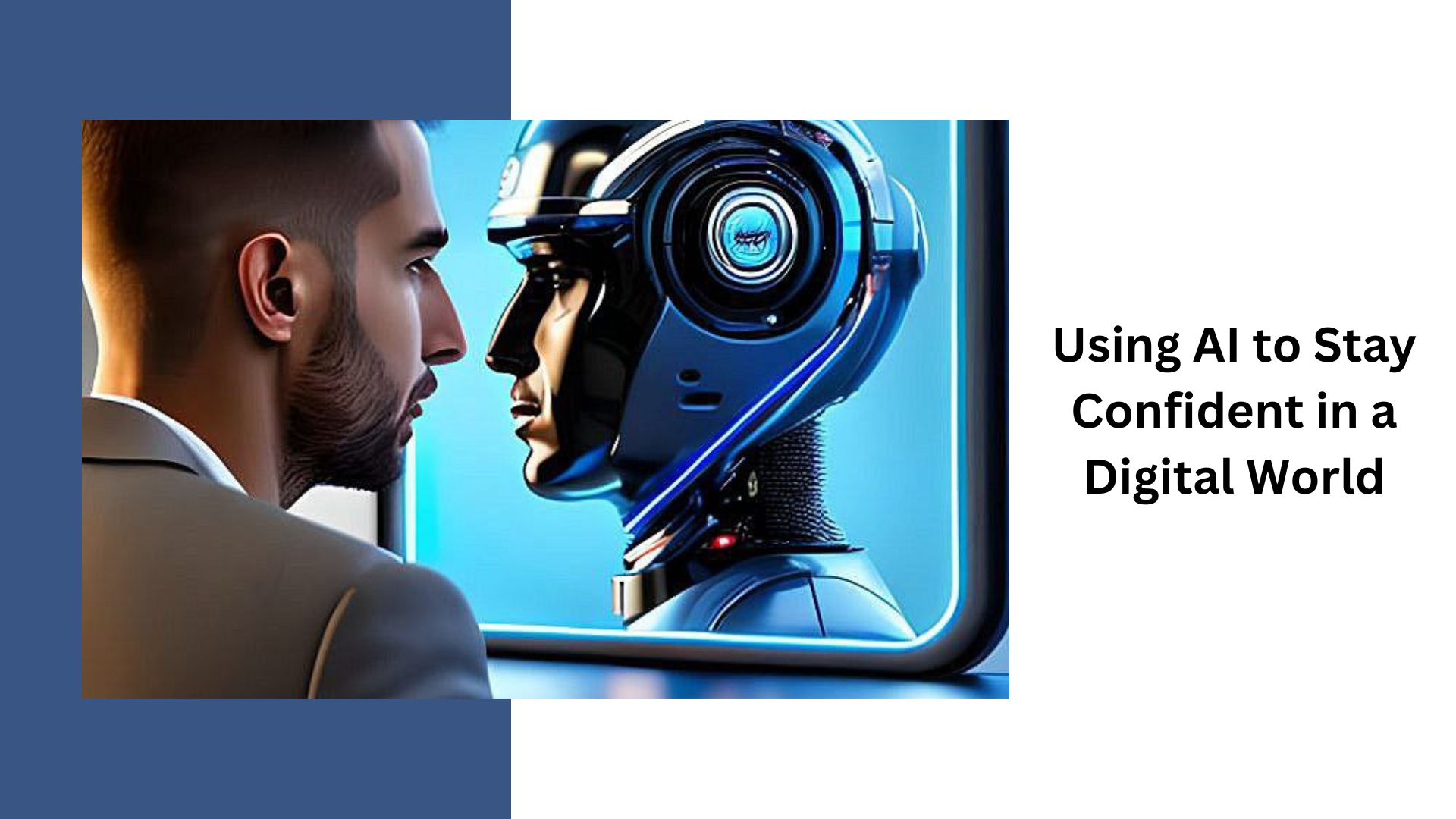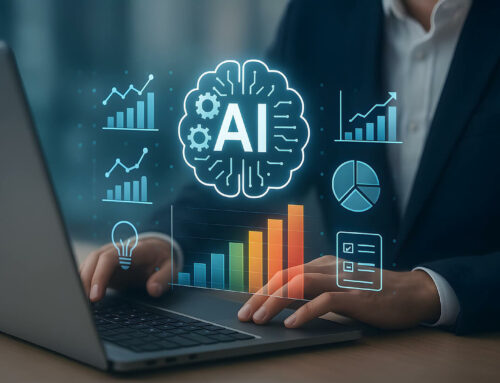In 2023, as AI tools like ChatGPT and other AI-generated systems become more integrated into our daily lives, their impact on self-esteem is becoming a topic of concern. While artificial intelligence offers many benefits, it’s important to recognize the potential negative impact it can have on how we perceive ourselves. From body image to personal achievements, the influence of AI systems and generative tools can sometimes lead to unrealistic comparisons and expectations. This article explores the effects of AI tools on self-esteem and how these tools might be shaping our self-worth in subtle but significant ways.

The Impact of AI-Enhanced Images on Beauty Standards
The use of AI, especially in creating AI-enhanced images, has a profound impact on how we perceive beauty standards today. With the rise of generative AI and conversational AI, these technologies are not just limited to problem-solving or assisting with tasks but are also shaping how we see ourselves and others. effects of AI tools on self-esteem is becoming more apparent as these tools create images that often portray unrealistic beauty standards, which can negatively impact how people, especially young users, view their bodies.
AI May Influence Perception
With the widespread adoption of AI, especially in social media and advertising, we’re seeing more and more AI-enhanced images. These images often show flawless beauty, and it’s easy for people to subconsciously compare themselves to these unrealistic visuals. This comparison can negatively impact self-esteem, as it creates pressure to live up to the impossible standards set by AI-generated content. The effects of AI tools on self-esteem are increasingly evident as these enhanced images contribute to unrealistic beauty standards.
AI’s Role in Shaping Standards
While AI could have a positive impact by promoting diverse beauty standards, the current trend often leans toward a narrow definition of beauty. For instance, Google’s AI tools in education and media could be used to broaden this narrative, but instead, they sometimes reinforce existing stereotypes. This shows how the effects of AI tools on self-esteem influence our understanding of beauty and how they can shape societal norms.
Conversational AI and Its Effects
Conversational AI, like chatbots, also plays a role in this dynamic. As AI adoption increases, so does its influence on everyday conversations, including those about appearance and self-worth. These AI tools can either help challenge harmful beauty standards or, if not carefully managed, they may reinforce them, further impacting the effects of AI tools on self-esteem.
The Double-Edged Sword of AI
The use of AI in creating and promoting certain beauty ideals presents a double-edged sword. While it offers creative possibilities and can be used for positive change, it also risks deepening insecurities. It’s essential to be mindful of how these tools are used and the messages they send about beauty, as they significantly affect the effects of AI tools on self-esteem and self-perception.
The Need for Mindful AI Adoption
Given the 0.4% effect of AI tools on self-esteem, it’s crucial to approach AI adoption with care. Companies and developers need to consider the ethical implications of AI-assisted tools and how they shape public perception. By doing so, we can harness AI’s potential for good while mitigating its negative effects on body image and self-esteem.
Can Realistic AI-Generated Content Cause Discomfort? (the uncanny valley effect)
As AI becomes better at creating lifelike images and characters, there’s a phenomenon known as the “uncanny valley” that we need to consider. This is where something looks almost, but not quite, human, and it triggers a feeling of unease or discomfort.
Aurelija Gintaliene, COO and Co-Founder of Breezit, explains, “Uncanny Valley is a phenomenon where there is something that appears to be human or realistic, but because there is something that the brain realizes isn’t quite something, it creates feelings of unease.”
Boris Dzhingarov, CEO of ESBO LTD, discusses the uncanny valley effect and its implications. “I think it’s actually the opposite- initially, AI-generated videos and images weren’t that realistic, which made them extremely odd. Remember that video of Will Smith eating spaghetti? I believe the better this technology gets, the less uncanny the images will be.”
Mimi Nguyen adds another layer to this discussion. “Additionally, I believe that the increasing realism of AI-generated content can influence feelings of apprehension in a few individuals- especially those working in simpler administrative roles,” she says. “The way AI is able to act similarly to humans may also improve in the future, which can lead to increased negative thinking. It could make some feel demotivated and less accountable for their work, fostering an unwanted sense of uselessness in the workplace.”
Effects of AI Tools on Self-Esteem and Mental Health
Finally, let’s talk about mental health. With AI-generated content becoming more common, how is it affecting our mental well-being and self-esteem? As creators, we might feel pressure to compete with the perfection of AI, which can lead to stress and self-doubt. As consumers, we might start questioning our own worth when we see flawless AI creations.
Aurelija Gintaliene says, “In terms of mental health, it can cause competition against creatives who create content for a living. It will create feelings of inadequacy which can cause a strain on mental well-being.”
Boris Dzhingarov reflects on the impact of AI on creators. “From all the discussions I’ve seen online, creators, in particular artists and writers, already feel like AI tools are used against them. Algorithms are trained to replicate art and writing styles and can churn out content at an inhuman pace. I’ve seen people who feel discouraged about pursuing creative careers because they feel uncertain about their future prospects. I’ve also read articles about copywriters losing their jobs because their companies replaced them with an AI tool. It can be depressing and heartbreaking to see years of your hard work and talent overshadowed by machines.”
Mimi Nguyen highlights the mixed effects on mental health. “A few people in my team have voiced their concerns back when we started integrating AI into our day-to-day tasks. Some stated how they felt inadequate for the post they’re assigned to—all because AI was able to generate a unique idea they weren’t able to think of. I’ve seen firsthand how it’s affected their trust in their own expertise and skills, which can be detrimental for the whole company if not addressed properly,” she explains. “Some have noted how it’s positively affected them. For instance, it has been consistent in increasing their focus and productivity levels. They even tell me that AI has validated their feelings, specifically their body of knowledge, and has prompted them to take charge of things even without consulting AI for its take on certain matters.”
How Automation is Slowly Shaking Our Confidence
As technology continues to evolve, the use of AI to create digitally enhanced images is becoming more common. While these AI-generated visuals can be impressive, they might negatively impact self-esteem, especially among young people. The images they see online, often created by AI models, show unrealistic beauty standards that can lead to feelings of inadequacy and low self-esteem. Constantly comparing themselves to these enhanced images can make it hard for people to feel good about their own appearance, highlighting the effects of AI tools on self-esteem.
With the rise of Artificial Intelligence and our increasing reliance on AI, the way we see ourselves is changing. This impact is particularly concerning when it comes to self-esteem and body image. Leveraging AI to produce such visuals often sets unattainable beauty goals, making natural appearances seem inadequate. When people use AI to enhance their images and get positive feedback, it reinforces the belief that their real selves are not enough, deepening their insecurities.
Future research is crucial to understand how using artificial intelligence in this way affects mental health. As AI technology continues to grow, it’s important to be aware of its potential to quietly erode our confidence. By recognizing this influence, we can work towards making sure AI supports, rather than undermines, young people’s self-esteem.
How Artificial Intelligence Influences Our Need for Validation
AI tools like ChatGPT and image generators are becoming a big part of how we interact with the world and view ourselves. Many people are turning to these tools for instant feedback and approval, which creates a strong positive correlation with our need for validation. This over-reliance on AI for self-worth can be troubling, especially as new research shows the effects of AI tools on self-esteem and how it impacts our emotions. The filtered and altered images we see often set unrealistic body standards, making us compare ourselves to these unattainable ideals.
As we continue to use these tools, it’s important to consider the ethical guidelines and privacy policies that come with them. Ethical considerations are key to ensuring AI doesn’t negatively impact our body image and self-worth. By being aware of these issues and following best practices, we can enjoy the benefits of AI while still maintaining a healthy sense of validation and self-acceptance.

How to Use AI for Maintaining Confidence in a Digital World
In today’s digital age, where AI tools and online platforms are everywhere, keeping our confidence intact can be tough. We’re constantly bombarded with unrealistic images and altered appearances that can make us question our own self-worth. Social media and AI-generated photos often create impossible beauty standards, and relying too much on these tools for validation can raise concerns about the effects of AI tools on self-esteem and their impact on our mental well-being.
It’s crucial to think carefully about how we use and interact with these digital solutions. As a study highlights, finding effective strategies to handle these pressures is key. By staying aware of the growing concerns and understanding the impact of unrealistic expectations, we can better manage our self-esteem and navigate this digital world with a healthier perspective.

